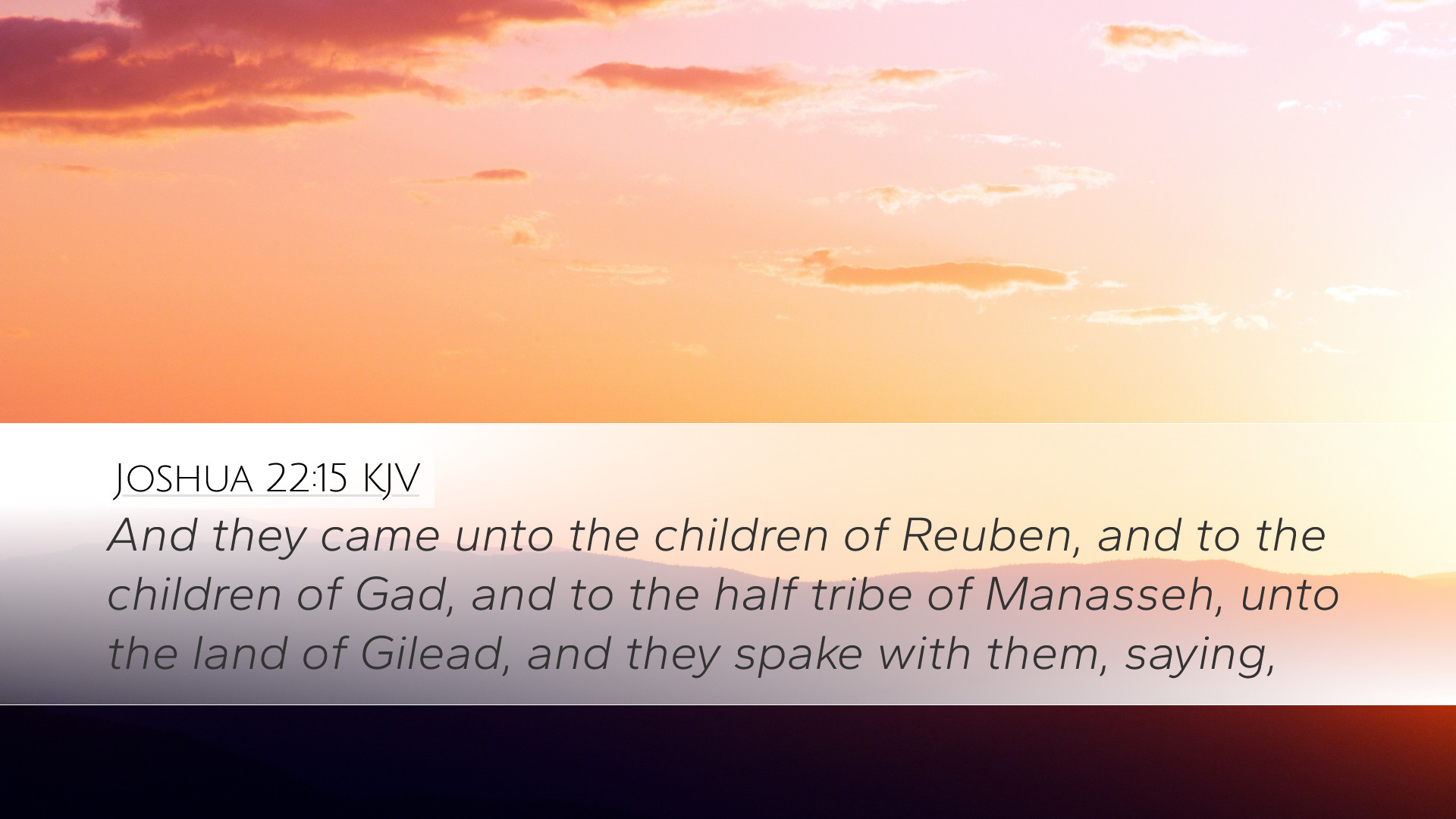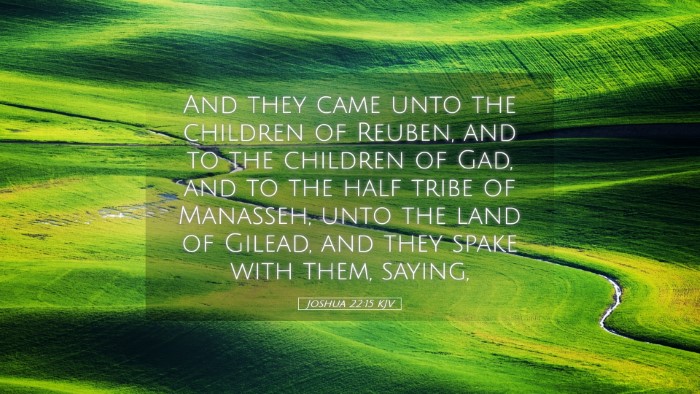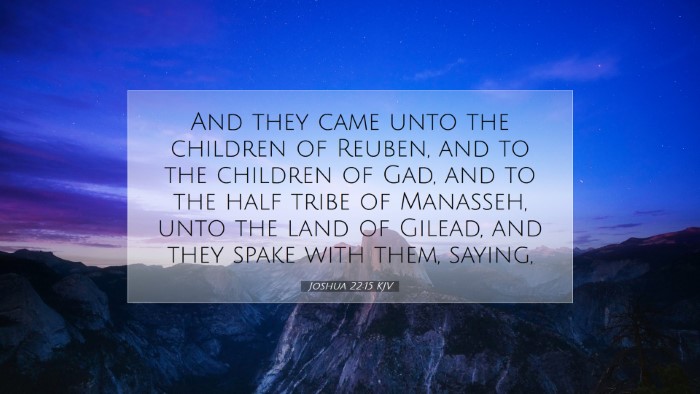Bible Commentary on Joshua 22:15
Verse Context: Joshua 22:15 presents a critical moment in the narrative of Israel's history as they establish themselves in the Promised Land. This verse falls within a larger discourse where communication emerges between the tribes of Israel, specifically addressing the concerns of the tribes of Reuben, Gad, and half of Manasseh.
Text of Joshua 22:15 (ESV)
"And they came to the people of Reuben, and the people of Gad, and the half-tribe of Manasseh, in the land of Gilead, and they said to them,"
Insights from Matthew Henry
Matthew Henry emphasizes the importance of unity and communication among the tribes of Israel. He notes that the leaders from the other tribes approach the Reubenites, Gadites, and the half-tribe of Manasseh with a mixture of caution and concern. Henry points out that this verse highlights the dangers of misunderstandings within the community of believers, which can lead to discord.
Henry also interprets this scene as a reminder of God’s covenant with Israel. The leaders, acting as mediators, aim to remind the tribes of their responsibilities and the repercussions of potential disobedience:
- Importance of Addressing Issues: Henry suggests it is crucial for disputes and misunderstandings to be addressed directly. The leaders do not let grievances fester but instead confront them proactively.
- Community Responsibility: Each tribe's well-being is interconnected, reminding the audience that individual actions affect the whole community.
Insights from Albert Barnes
Albert Barnes offers a detailed exposition on the historical and theological implications of this verse. He describes how this meeting signifies a critical dialogue among Israelite leaders about their shared faith and communal obligations.
Barnes interprets the intentions behind this dialogue, highlighting key themes such as:
- Fidelity to God’s Commands: Barnes stresses that the leaders' visit to address the eastern tribes serves as a reminder of the commitment to God’s covenant and obedience to His commands.
- Unity and Conciliation: The text serves as an appeal to strive for unity among the tribes despite geographical and political divisions. Barnes argues that the ongoing pursuit of harmony reflects a deeper theological truth about the body of believers.
Insights from Adam Clarke
Adam Clarke provides a profound theological reflection on this verse, particularly considering its implications for pastoral care and community leadership. He notes that the approach taken by the leaders reveals important principles for conflict resolution:
- Gentle Approach: Clarke highlights that the manner of communication is marked by respect and a desire for understanding, suggesting that leaders must approach issues gently and seek dialogue rather than confrontation.
- Importance of Accountability: By addressing the tribes directly, the leaders invoke a sense of accountability, reminding them of their shared responsibilities as part of God’s chosen people.
Theological Themes:
This examination of Joshua 22:15 reveals several key theological themes that resonate throughout Scripture:
- Community and Belonging: The call for unity among diverse tribes illustrates that the people of God are bound together in a covenantal relationship.
- Leadership Responsiveness: The leaders' proactive stance serves as a model for modern church leaders, emphasizing the need for vigilance and engagement in communal life.
- Divine Guidance: The meeting reflects a reliance on God’s wisdom; leaders are reminded that they must seek divine guidance in keeping the community aligned with God’s will.
Practical Implications for Today’s Church
For pastors, theologians, and church leaders, Joshua 22:15 provides several practical insights:
- Fostering Dialogue: Create environments where open discussions can occur about potential grievances or theological differences without fear of conflict.
- Encouraging Accountability: Encourage congregations to hold one another accountable in their faith journeys and communal relationships.
- Promoting Unity: Actively work towards unity within the church, recognizing that diversity can often lead to strengths if managed with the spirit of cooperation and love.
Conclusion
In reflectively studying Joshua 22:15 and insights shared by classical commentaries, we gain a rich understanding of community, leadership, and faithfulness among the people of God. It is a reminder that even within a diverse body of believers, a commitment to open communication, accountability, and shared purpose is essential in fulfilling the mission set before them by God.


